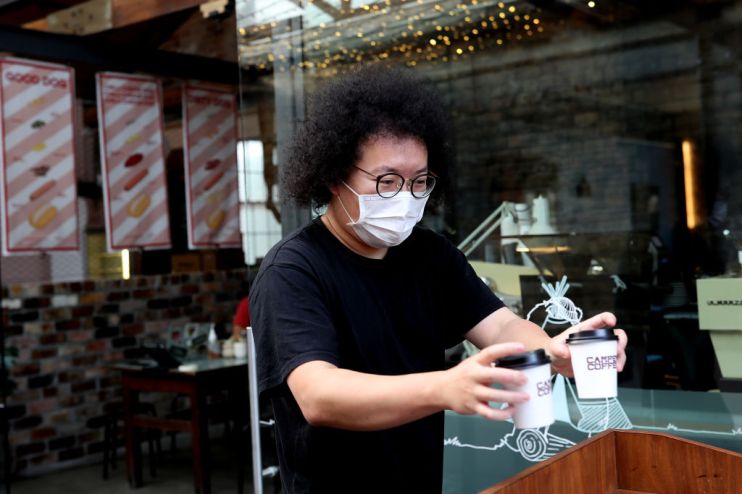It’s time to outlaw plastic coffee cups – voluntary efforts are rife with tokenism and doomed to fail

In 2017 betting firm 888 received a £7.8 million fine for failing to protect customers most susceptible to problem gambling. 7,000 people had voluntarily barred themselves from the company’s online terminals, only to find they still had access due to a technical failure in the firm’s system.
New legislation will ensure the sector is doing enough to safeguard those most susceptible to gambling addiction.
It is high time the government adopted a similar approach with plastic pollution. It is patently clear that voluntary efforts are not working. Most voluntary initiatives by manufacturers and retailers are tokenism or spin, with very little substance, aimed at prolonging the status quo of plastic packaging for as long as possible.
Many organisations are quick to highlight their plastic free aspirations, but slow to adopt meaningful change. Earlier this year the Break Free From Plastic movement assessed hundreds of corporate solutions designed to reduce plastic pollution. Out of 265 projects from the world’s top polluting companies, they deemed 226 were “false solutions” to releasing the planet from plastic’s grip.
In its extensively researched report, “Talking Trash – the corporate playbook of false solutions to the plastic crisis”, the Changing Markets Foundation succinctly summarised that large corporates use voluntary “initiatives as a tactic to delay and derail progressive legislation – all while distracting consumers and governments with empty promises and false solutions”.
Industry pacts and pledges are great PR tools, but voluntary schemes lack the rules needed to hold companies to account. And even if all industry pledges around the world were met, we would only reduce the flow of plastic into our oceans by seven percent by 2040.
Despite the hundreds of projects touted as potential solutions, plastic pollution is growing exponentially. Plastic used by UK supermarkets in 2019 grew to more than 900,000 tonnes, despite the numerous measures and initiatives designed to reduce it. The takeaway sector also contributes huge amounts to pollution, with plastic detritus from the sector’s food and drink packaging the dominant polluter in the world’s oceans. Just 10 plastic products, including bottles, food containers, and wrappers account for three-quarters of litter polluting the seas.
The UK takeaway-coffee industry alone contributes half a million coffee cups and plastic lids every day, some 2.5 billion every year with only 1 in 400 ever recycled.A further 6 billion cold drinks cups and lids are used in the UK’s fast-food sector. Yet, there is no legislation in place to tackle their impact. The Government’s Single-Use Plastics Ban only deals with a small selection of plastic items. Why is it not extended to include more significant polluting items?
Adding the big polluting items to the ban or, at a minimum, imposing environmental levies on these products, will be a powerful signal that the government is ready to hold industry to account on plastic pollution. Such action will rapidly focus minds and drive change.
While businesses the world over have the power to drive change they lack the incentive. Plastic is the lowest cost option and higher profits, at least in the short-term, are an inevitable temptation. Changing the cost dynamic with producer levies will rapidly result in a switch away from plastic products.
While Government legislation will deliver rapid change, voluntary tokenism by the sector supports the status quo and environmental catastrophe.
Imagine how the environmental health of the planet would improve if businesses around the world competed against each other to be the most environmentally friendly. With consumers crying-out for organisations to tackle the plastic crisis, those organisations who place their sustainability credentials first will reap the rewards. But legislation is the spark to drive this.
The UK’s single-use plastics ban is a tool which is currently under-utilised, but it can be a powerful signal of intent that emboldens industry action.
Ending the madness of plastic coffee cup lids and plastic coated cups will show industry the days of voluntary pacts and pledges are numbered. Like the gambling sector, it has been marking its own homework for far too long. Self-regulation will only go so far in tackling issues related to the industry’s contribution to environmental problems.
There needs to be a fundamental legislative change. Adding coffee cup lids to the existing plastics ban would be a good place to start. Solutions are available. The planet urgently needs effective Government action and implementation – not industry tokenism, spin and hollow gestures masquerading as progress.